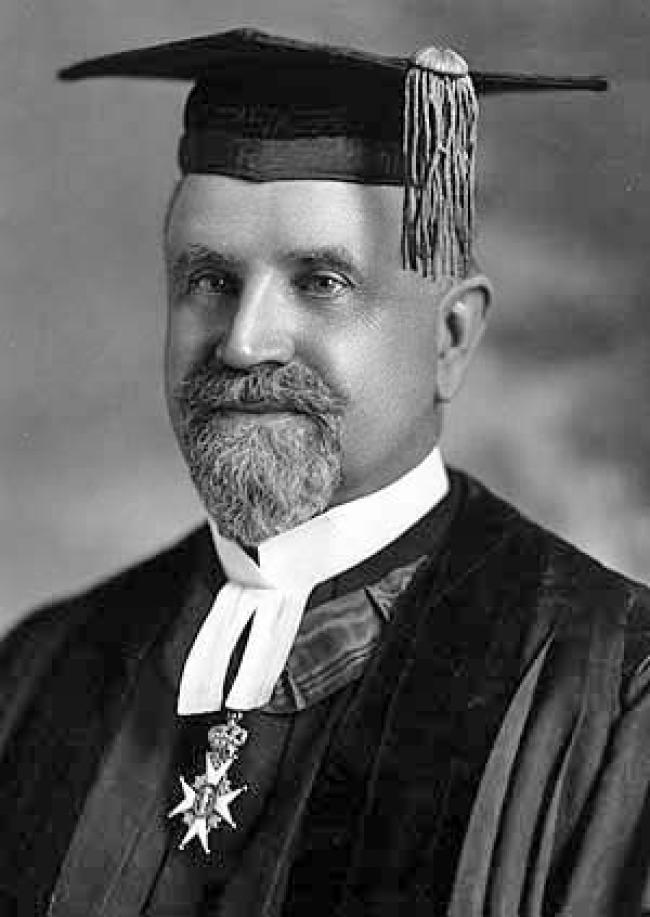Gustav Andreen (1864-1940)
Fourth President of Augustana College, 1901-1935

Born in Baileytown, Ind., in 1864, Gustav Andreen was the first American-born president of Augustana College. A graduate of Augustana and of Yale University, where he earned a doctorate in Scandinavian languages and literature, Andreen was also the first president to be an alumnus and to have earned his university degree in America.
Andreen was the first president to be elected to Phi Beta Kappa and the first (and only) to serve more than 30 years. He did not, however, break the chain of pastor presidents, becoming ordained in 1905.
Andreen was also the first president to mount an organized fund-raising campaign to establish a college endowment. He began the campaign in Sweden where he was able to persuade some prominent Swedes to pledge 100,000 kronor (about $25,000) to endow a professorship in natural sciences. At the same time, he set a goal of raising $50,000 in America for professorships in Swedish language and literature and in church history. By 1935, the endowment amounted to well over $1 million.
Concern about financial stability was ever present, especially in the midst of the depression, but the college under Andreen continued to maintain its close ties to the Lutheran Church. Although leaders of the Synod considered the separation of college and seminary, for now they rejected that move; they did, however, recommend a separation of funds and management.
Despite its religious foundation, the college under Andreen was open to all academic knowledge. The Scopes "monkey trial" in 1925 accurately reflected the thinking of most religious leaders that Darwin's theory of evolution was anti-religious and should not be taught in church-related schools. A committee which included Andreen and the dean of the college responded to the issue by saying that biology classes placed no undue emphasis on evolution. Meanwhile, the field of geology, which provided much of the evidence for evolution and which was not included in the curriculum of most church-related colleges, had been taught at Augustana for decades. In 1929, under Andreen's leadership, a formal department of geology was established.
Andreen's magnetic personality won many friends both within the Synod (where he was welcomed in congregations large and small as "our Andreen") and without: His presidency saw not only the gift of an extraordinary library by the family of Frederick Denkmann, but the first lasting ties to the local, non-Swedish community. The latter includes an 88-year relationship with the Quad City Symphony Orchestra, which continues today.
In the early 1930s, the science departments were struggling to teach in Ericson Hall, a converted residence. The North Central Association of Colleges and Secondary Schools threatened to remove Augustana's accreditation if better facilities for science teaching were not provided. Thanks to a generous gift from an alumna, Marie Wallberg of Clinton, Iowa, Andreen was able to initiate the building of the Wallberg Hall of Science, which opened in 1935. With a more secure financial foundation and with a dedication to excellent teaching in appropriate facilities, Andreen propelled Augustana soundly into the 20th century.
